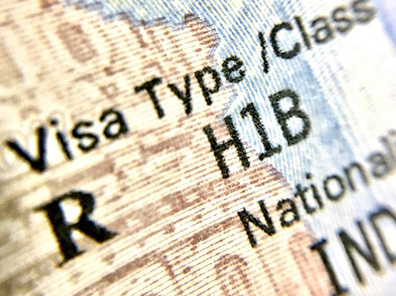
One of the major changes at U.S. Citizenship and Immigration Services that the Trump administration implemented under Francis Cissna was to apply some scrutiny to the approval process for H-1B visas.
Previously, the H-1B program had been a rubber-stamp operation with a huge fraud rate in approved visas.
The situation was so bad that one could even import sex slaves into the United States using H-1B.
Now USCIS is taking the long overdue step of ensuring that H-1B workers actually have jobs or that the position is actually a specialty occupation that requires a college degree.
The change from no scrutiny to some scrutiny has caused shock waves among those involved with making H-1B petitions. Their strategy appears to be to flood the courts with lawsuits challenging H-1B denials.
However, that approach may not work.
This week the District of Columbia District issued an opinion in Sagarwala v. Cissna. Plaintiff Usha Sagarwala was in the United States on an H-1B visa. She sought to change jobs so that she would work as a "QA analyst" (Quality Assurance) where HSK Technologies in Piscataway, New Jersey would be her paper employer while she actually would work for Anthem in Wallingford, Connecticut. Anthem is one of many employer using the H-1B program this way to replace American workers with cheap, foreign workers.
Changing jobs requires getting a new H-1B via approval. In response to the petition, USCIS issued a Request for Evidence, asking the "employer" to show that Sagarwala was actually going to be an employee of HSK and that the position was a specialty occupation.
USCIS ultimately rejected the petition, concluding "there was insufficient evidence to conclude that the required degree was 'common to the industry in parallel positions among similar organizations' or that the position was 'so complex or unique that it could be performed only by an individual with a degree.'"
The District Court held "USCIS did not act arbitrarily or capriciously in concluding that HSK Technologies' petition did not describe a specialty occupation" and that "there is no basis under the APA for setting aside the agency's decision."
For those of us who have worked in the industry, the only thing surprising about this determination is that USCIS might have approved such a visa petition in the past. QA is not a position that requires a college degree. While some QA job postings list a degree as a requirement or nice to have, many do not.
The decision by the district court starts clearing away the legal obstructions to USCIS's end of rubber-stamping H-1B petitions.
